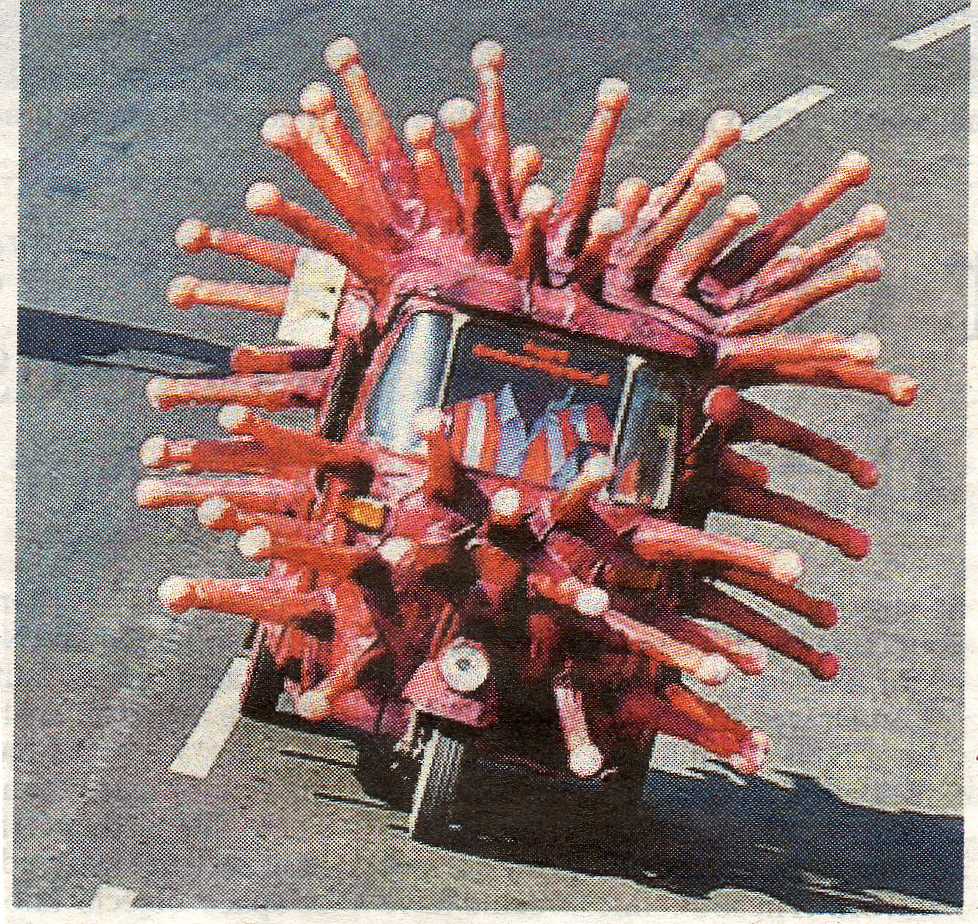
MOTORING MILESTONE NEWS YOU MIGHT HAVE MISSED…
…By David Miles (Miles Better News Agency).
I’m still keeping calm and carrying on sifting through the latest automotive news items and press releases pinging into my Inbox. Some are less ‘newsy’ than others and some press releases are just recycled items as PR operators seek to keep us informed by promoting their brands.
Here are some worthwhile snippets of news worth passing on:
A lock-down reminder – Indian style
Courtesy of The Times newspaper in the UK is our heading photograph of a Tuk Tuk styled as the coronavirus which appeared on a Chennai road warning users to go home. At the time of writing, India with a population of 1.38-billion people is now coming to an end of its initial four week lockdown. It has so far officially recorded close to 1,100 deaths and almost 27,000 coronavirus cases. These figures will of course not be accurate due to the millions of residents who are classed as rural dwellers and the very limited medical services available.
The Indian Government last week allowed small shops to re-open to stimulate their ailing economy as unemployment has increased to 23%. India has been the fourth largest car manufacturer in the World producing over 4-million cars a year out of a total of almost 31-million motor vehicles ranging from motorcycles to three wheelers, cars, vans, small to huge commercial vehicles and tractors. Chennai is one of the major areas for vehicle production in India.
How long? Electric car charging network survey results
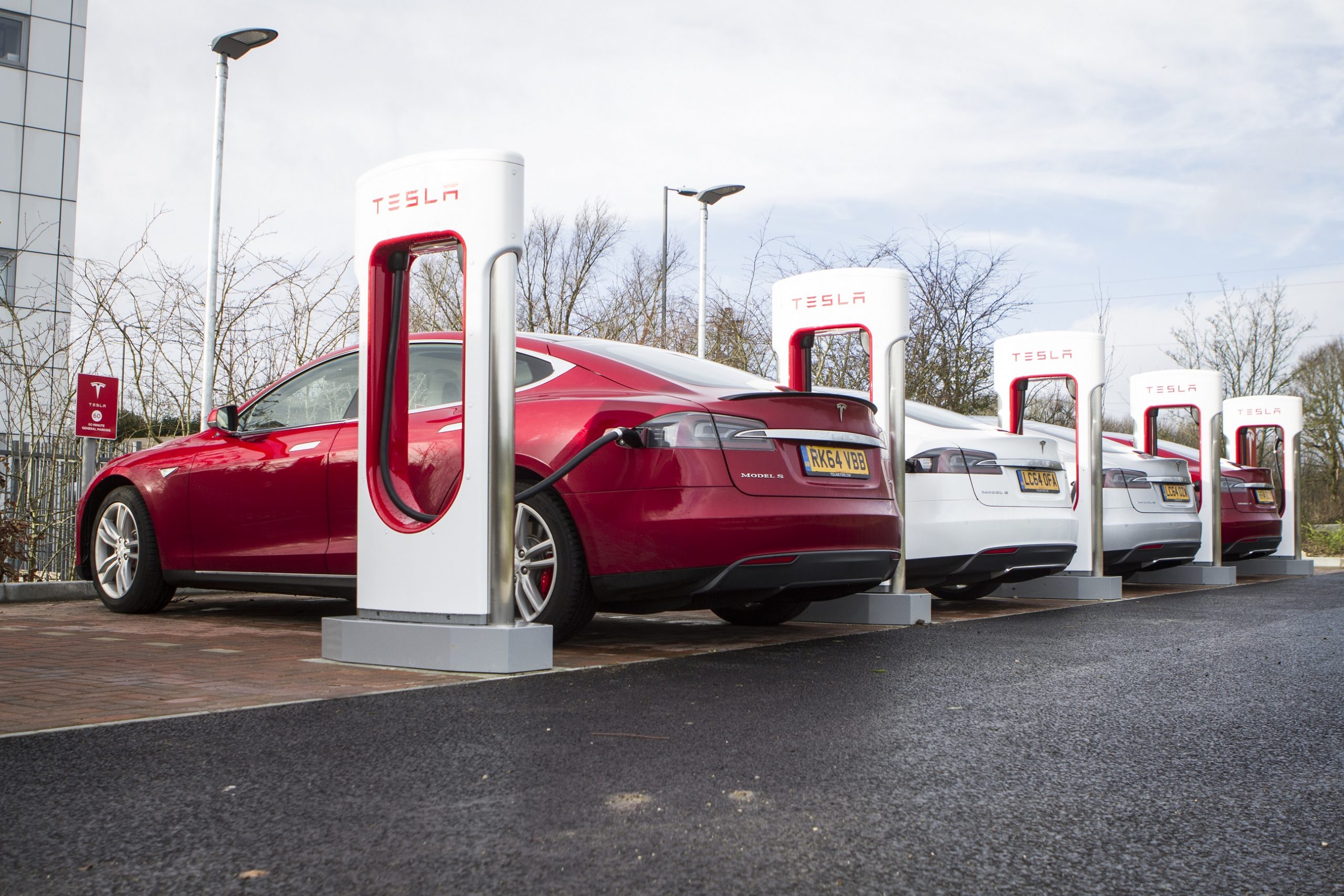
Earlier this week my colleague and I produced a price comparison story regarding the cost of electric cars on sale in different countries. Further to that subject Auto Express magazine has now conducted their Driver Power 2020 survey about the efficiency of public mains car charger points for pure electric and plug-in-hybrid PHEV cars.
Top of the ranking was Tesla with a 92.9% customer satisfaction rating, but the downside for me is these points can only be used by Tesla vehicles so whilst the service and reliability is good the availability is very limited for other potential users. In second place came Instavolt with a rating of 85.1% which offers a single flat price across its pay-as-you-go service which can be used by drivers of all electric cars whatever their make. In third place was ChargePlace Scotland with a score of 81.3% and lost out in the voting for unreliability but when working they can be used by all makes of cars.
Bottom was Ecotricity with a score of 64% which is worrying given their ‘Electricity Highway’ makes them the dominant force in the UK with 300 charge points. Ecotricty’s response was the survey was well below the sample size to make the results statistically robust or meaningful.
Given the survey used the responses from 809 motorists and only 11,700 pure electric cars were sold in the first three months of this year the survey numbers pro-rata were probably realistic.
What springs to my mind is that for electric car and PHEV sales to become a realistic option for mainstream users, is not only to reduce their high price but we must have an integrated charging network in the UK and overseas. We must be able to charge any electric car or PHEV at any charging point whatever the vehicle’s make and we must be able to pay with a card or cash with no APPs needed – keep it simple and it will work.
You wouldn’t dream of requiring an owner of a petrol or diesel car to fill-up at a dedicated brand of fuel pump to match a particular brand of car.
Another major issue is the time it takes to recharge an electric car or van’s powerpack. Even using a fast charge system it is likely to take 45-minutes against the 5 to 10-minutes for a petrol or diesel vehicle fill-up. In particular motorway filling stations and car parking areas with their high volume throughput of vehicles just couldn’t have enough fast-charging points to meet the demand.
Audi on a recharge and new A3 models launched
On the subject of electric cars Audi has just said their new e-tron models with a charging capacity of up to 150kW can reach the 80% charging mark after around 30-minutes and to fully recharge the lithium-ion battery back takes 45-minutes.
Audi has also recently launched their new fourth generation A3 Sportback range priced from £24,900 initially with 1.5-litre TFSI petrol and 2.0-litre diesel engines, some with mild hybrid technology and with quattro 4WD options. Last week the Audi A3 range was extended with the launch of the A3 Saloon priced from £26,870, again with the same engine choices. Deliveries for the Sportback are imminent and the Saloon will become available this summer. Audi also announced they will gradually re-start production of their vehicles from now onwards.
From modern technology to motoring nostalgia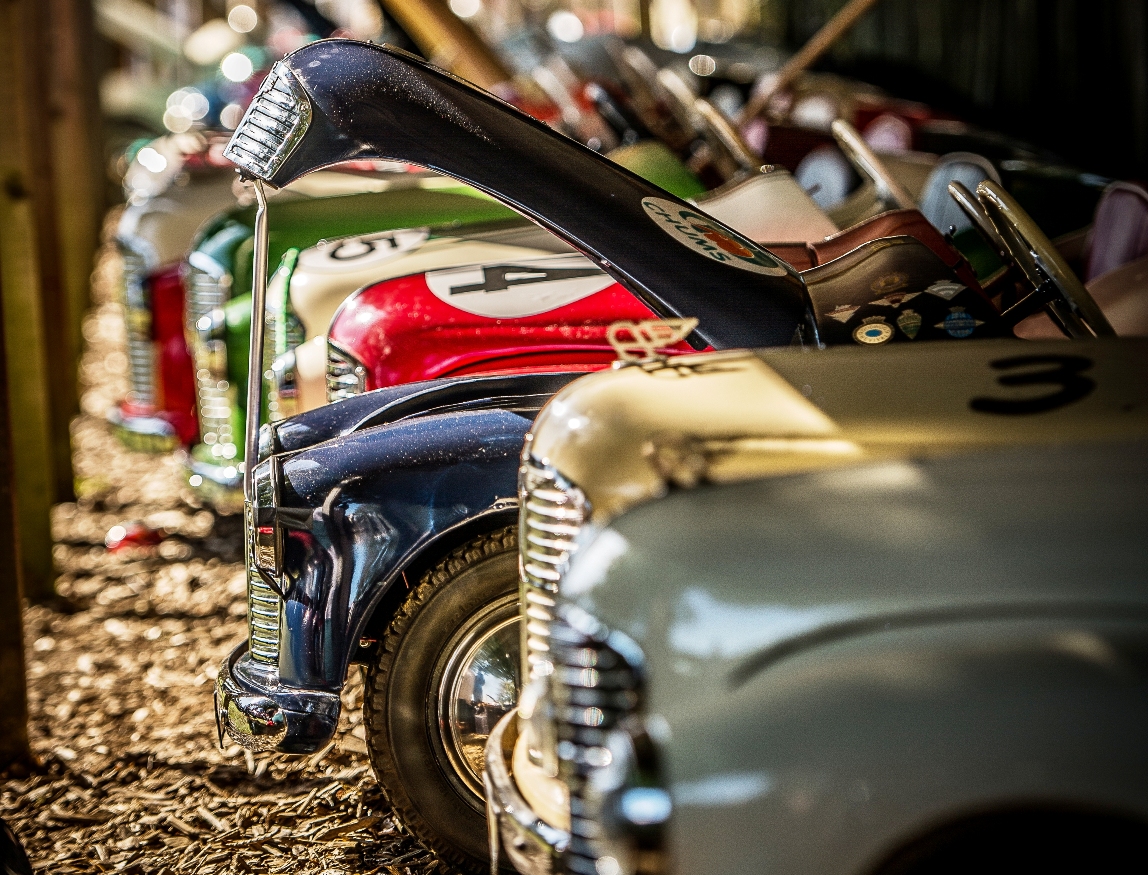
Burlen Ltd, known around the globe as manufacturers of the world’s best known carburettors from Amal, SU and Zenith has purchased the Austin J40 pedal car spares business from industry expert and engineer Roy Halford.
Burlen will now supply a range of J40 pedal car parts and spares, manufactured in-house in Wiltshire using traditional and modern manufacturing methods to ensure their quality and fitment.
Now famous for the children’s Settrington Cup at Goodwood Revival, the Austin J40 pedal car was originally made in England by the Austin Motor Company Limited, based on the 1948 A40 Devon and Dorset.
Each car was manufactured in South Wales at a specially constructed factory opened in 1949 under the name of the Austin Junior Car Factory. The business operated on a not-for-profit basis, existing purely for the employment of disabled coal miners who sought a new vocation after injury.
Pedal cars were made from scrap metal taken from the Longbridge Austin factory, each built and painted in the same way as the actual cars would have been. Standard features included working headlights and horn, detachable wheels with Dunlop tyres, a realistic facia panel and leather or cloth seating. In addition, each car had an opening bonnet and boot, chrome bumpers, hub caps, grille and boot handle.
A total of 32,098 Austin J40 pedal cars were made before production ceased in September 1971 with cars being shipped around the world. Many featured in films for road safety or were used as fairground rides, but most were sold to families to be enjoyed by children, despite the purchase price equating to two weeks of the average salary at the time.
Today the J40 pedal cars are as sought after as a full-sized classic car with restoration ready examples continuing to be discovered in sheds around the world and now fetching thousands of pounds. Concourse examples, as seen on the grid at Goodwood Revival, can fetch much more.
Prior to Burlen acquiring the business, Roy Halford had supplied J40 parts and spares for almost 40 years, a business he started in 1983 after purchasing a J40 for his children only to discover a lack of spare parts availability
A new development for the J40 business is the ability to browse and purchase parts and spares online at www.j40motorco.com. Previously online shopping was not available but the launch of a dedicated website lowers barriers to entry and allows for global customers to purchase with ease.
During the current COVID-19 pandemic, Burlen has been manufacturing Amal jets for use within oxygen systems fitted at the Nightingale hospitals in Birmingham and London.
UK car production eases back to life plus more NHS equipment from Nissan and Bentley
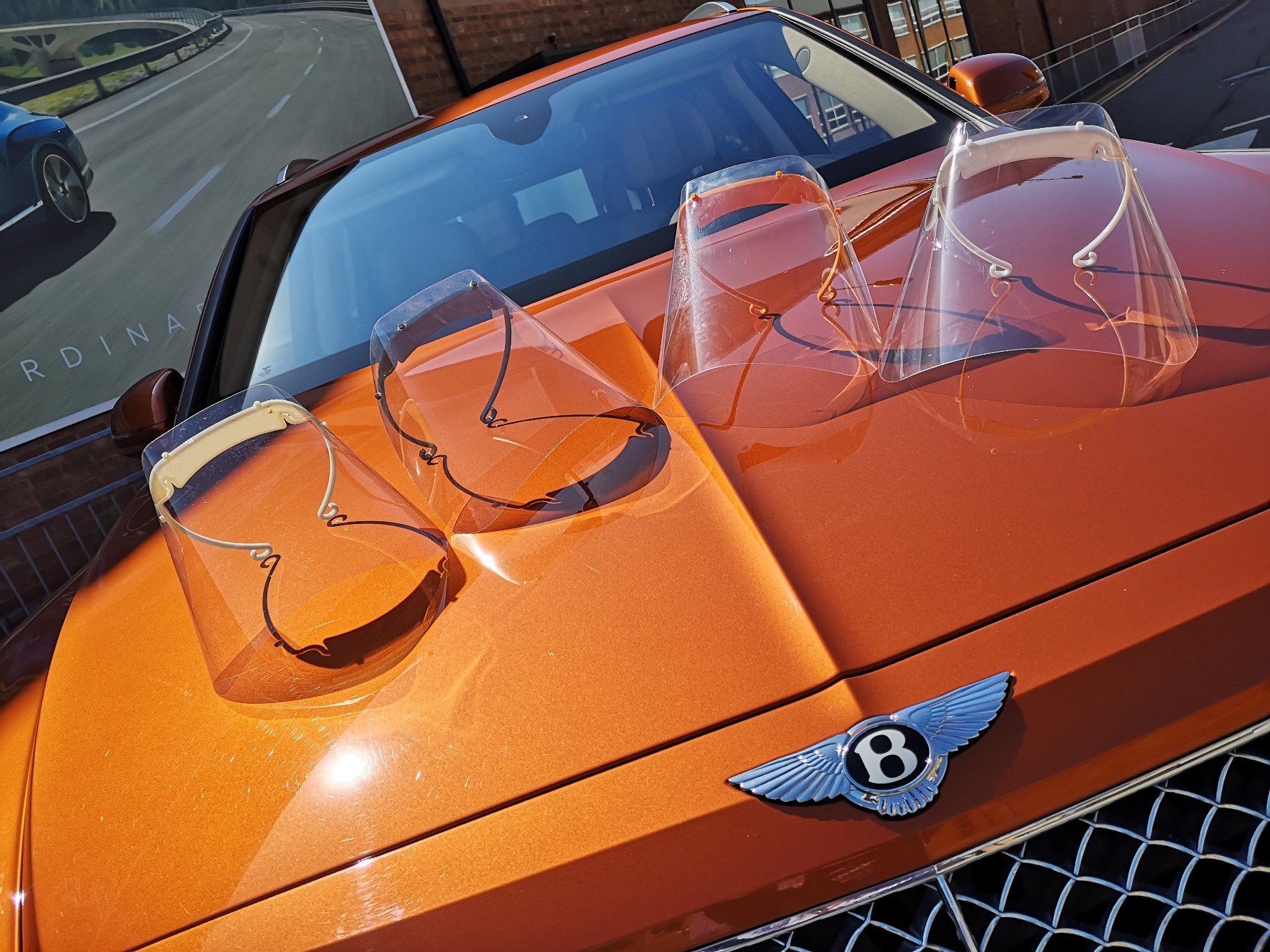
The wheels are being oiled to get UK car production up and running again. But the first move into production will be a cautious one with social distancing measures having to be used inside the factories.
Bentley says it will start limited production at its Crewe plant on May 11 with full production a week later. In the meantime they have been producing face masks for their local NHS community. Vauxhall is in a similar pre-production situation at its Ellesmere factory, Jaguar Land Rover, Britain’s largest employer in the industry, plans to open its Solihull plant from May 18, Aston Martin’s St Athan factory in South Wales, which needs to get on with building its highly awaited DBX SUV, could beat them all with a new limited start up production date of May 5.
At what would have been the week of the UK’s Commercial Vehicle Show Ford are celebrating the 55th anniversary of their Transit range and commercial market leadership by loaning out their fleet of vehicles to food retailers, transport to/from care homes, NHS ambulance service trusts and other ‘blue-light’ services.
Abroad Volkswagen Group’s brands of VW, SEAT and Skoda have also started limited car production at their domestic plants in addition to their Bentley brand in the UK.
The UK desperately needs car manufacturing to begin again as the industry annually generates £82bn in turnover, it contributes 14.4% to UK goods exported, it employs 823,000 people and last year produced 1,303,135 new passenger cars.
Nissan still supporting NHS staff with protective equipment
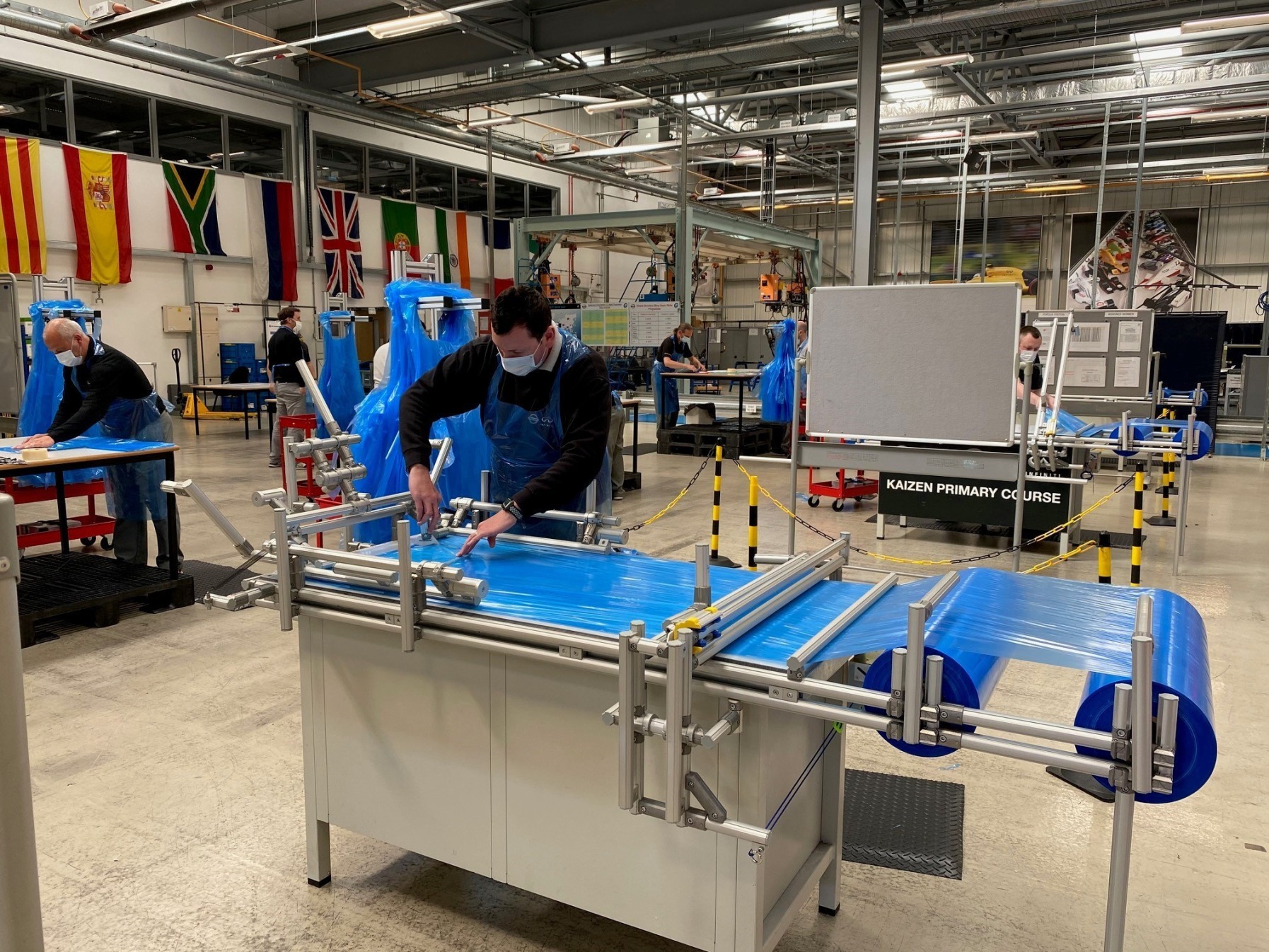
Meanwhile at Nissan’s Sunderland plant, in addition to getting ready to start producing cars again, a team of staff volunteers at the plant took just eight days to design and build a process on-site to manufacture plastic aprons for the NHS out of tear resistant polythene.
Initial capacity was 18,000 units a week but this will increase to over 70,000 units within a week or so to meet the 47,000 orders received so far from local NHS trusts. This is in addition to the NHS visors they are producing with up to 100,000 of them being distributed each week.
More Vehicles than ever before in the UK
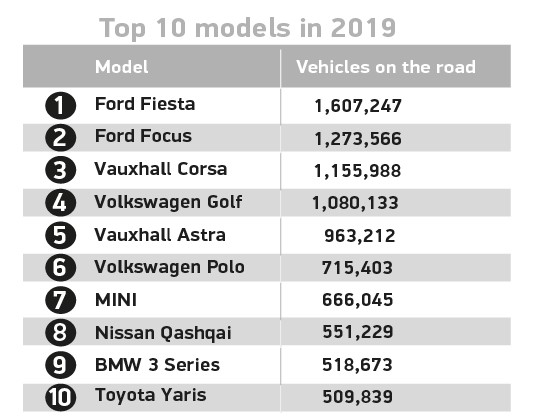
As the ‘lockdown’ has become a ‘breakdown’ judging by the number of vehicles being used on UK roads during this stay at home period, the Society of Motor Manufacturers has come up with the figures that there are over 40-million vehicles registered for use on British roads, the first time it has surpassed the 40-million mark.
According to their figures there are 35-millon passenger cars and over 5-million vans and trucks available for use. Apparently the boom in on-line shopping has brought a big increase in the use of delivery vans. Critical transport use during the COVID-19 crisis shows over 20,000 lorries and trucks are in use for deliveries to supermarkets, there are 18,250 ambulances in use and 6,350 fire appliance vehicles on-call.
Despite the increase in vehicle numbers the SMMT said the vehicles emitted an average of 141.5 g/km of CO2 emissions which is down by a fifth during the last decade despite the growth in sales of large SUVs. There are however only 750,00 hybrid or pure electric cars in UK use on our roads, up 26% last year but still only making up 2.2% of the total number of cars in use.
The SMMT report also said that black was the most common car colour, the Ford Fiesta was the most popular model with over 1.6-million of them on the road followed by the Ford Focus with 1.27-million and Vauxhall Corsa with 1.16-million. The best selling SUV was the British built Nissan Qashqai with 551,000 of them in use.
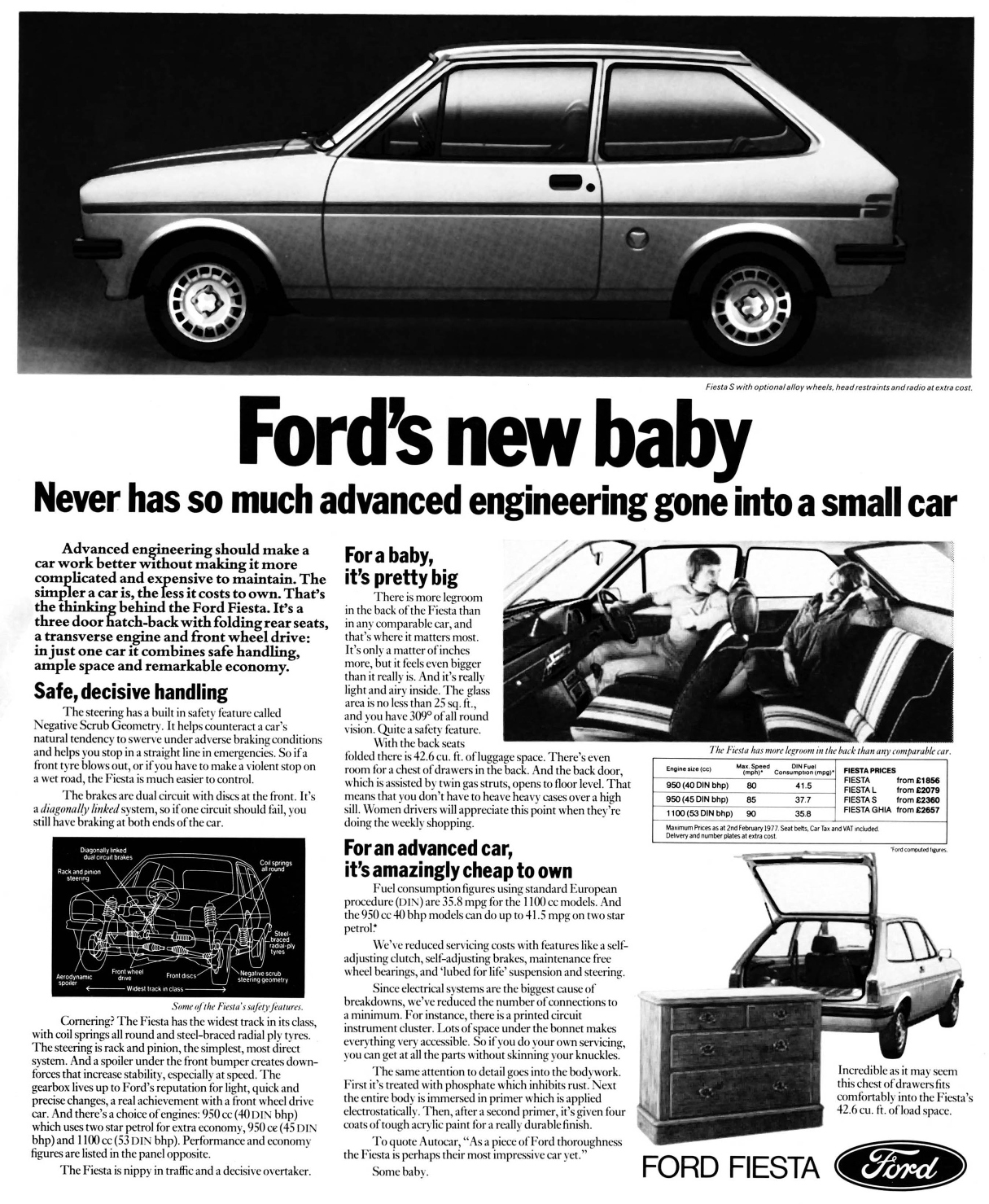
Sticky times at Rolls-Royce
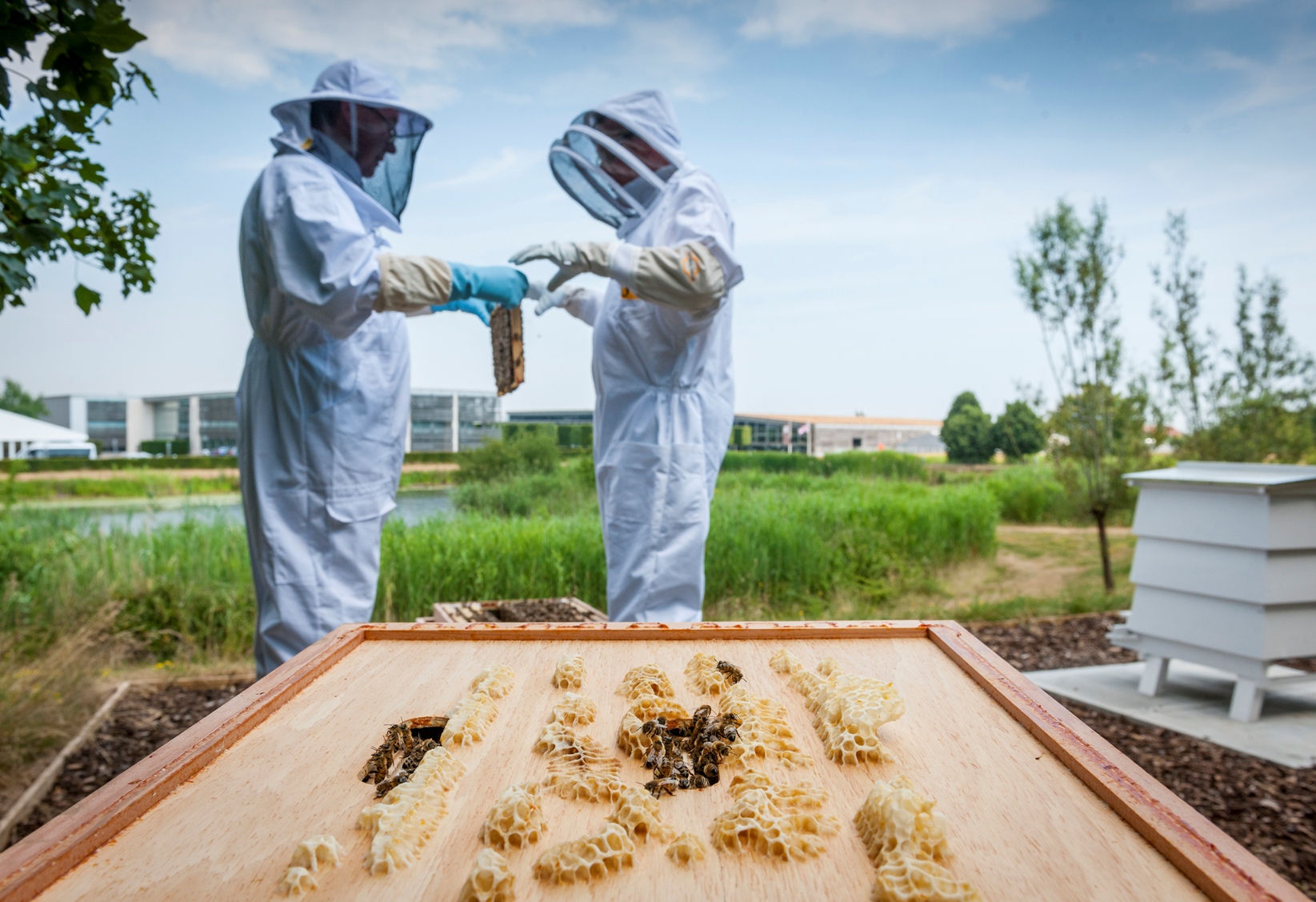
Although car production is still suspended at their Goodwood home in West Sussex, business is as ‘busy as bees’ in the grounds of the 42-acre Rolls-Royce site.
In their third season of production the 250,000 strong bee workforce, housed in six hives, are already busy and they look like producing a record level of Rolls-Royce Honey this year. This is served to guests of the marque, including commissioning customers, who visit the impressive production facility.
Dreaming of better days to come
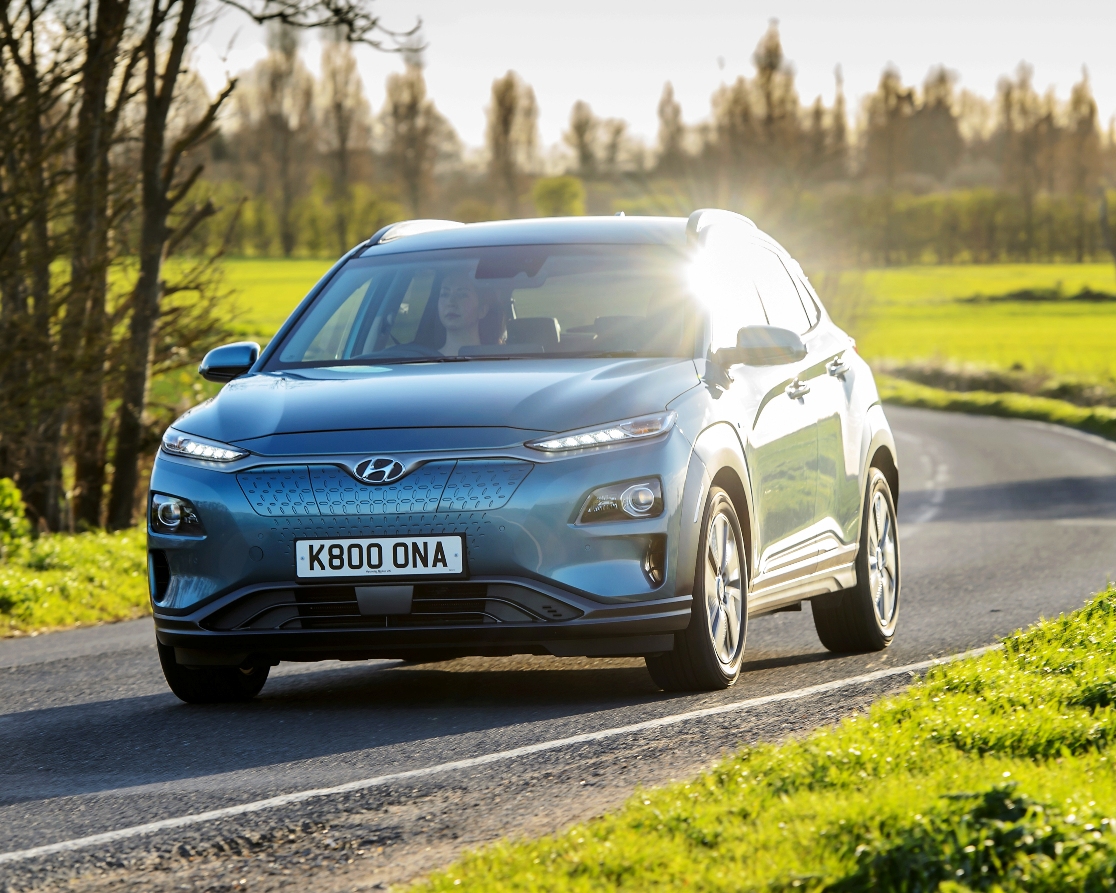
Hyundai in the UK, to publicise their Click to Buy website, has just announced the results of their 2,000 strong survey conducted by OnePoll on what the public think of the lockdown.
Half of adults surveyed said they are finding the lockdown difficult but 91% said it was necessary. Asked on what they will do first once the lockdown has ended, most popular would be a trip to see a much-loved relative followed by a bite to eat or a drink in a pub and probably a trip to the hairdressers. Around 17% said they wanted to visit a beach, although it seems many people breaking the lockdown are doing that already.
That said 77% of the respondents said they had taken their previous freedom for granted, 49% are looking forward to not having to worry about the two-metre distancing rule, one in 10 are excited about commuting to work, worryingly 5% want to experience getting stuck in traffic again and 40% said they were excited at being able to just jump into their car again and go for a pleasure drive.